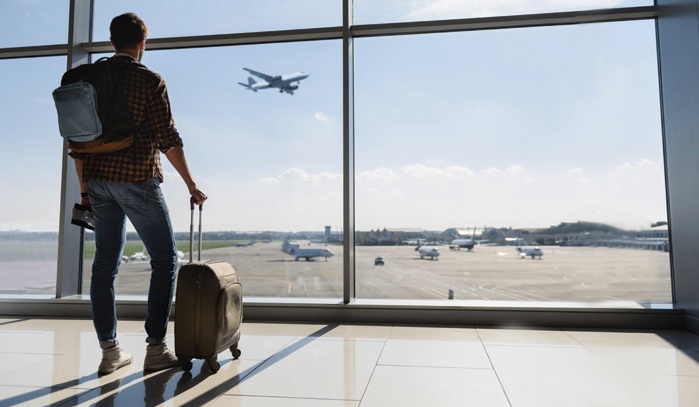
Muscat: Hamish Cowell, Britain’s ambassador to Oman, hopes people in the country, including students and his own countrymen, who wish to travel to the UK will soon be able to do so.
Oman is currently on the UK’s red list, which means entry to the UK is only permitted for British nationals, as well as those who have residency rights.
However, if they have travelled through a red list country in the 10 days before arriving in the UK, they must take a COVID-19 test at least three days before flying to the UK, complete a passenger locator form, and book a 10-day mandatory quarantine package in a hotel, including two COVID tests.
“I know many in Oman, whether British nationals, Omani students preparing to study in the UK, or others, will have been disappointed to see that travel restrictions to the UK remain in place, following the latest review,” said Hamish Cowell, the UK’s ambassador to Oman.
“I understand that disappointment,” he added. “The Joint Biosecurity Centre (JBC) assessment process is highly detailed, and covers a range of issues, including genomic sequencing ability, COVID-19 transmission risks, and variant transmission risk.”
The JBC is part of the UK Health Security Agency and works with British health administrators to develop public health risk assessment methods that determine ministerial decisions on red, amber, and green list countries, as well the associated border measures for arrivals from these territories.
The JBC reviews more than 250 countries, with islands that are part of some countries being treated as separate entities, where allowed. As a precautionary approach, countries, territories, and island groups are assumed to be medium public health risk unless there is specific evidence to suggest they are either low or high public risk to the UK from all COVID-19 strains.
Ambassador Cowell added in this context: “The JBC cannot share data provided by other governments to inform that process. But I wanted to assure you that the embassy is working exceptionally closely with the Omani authorities, and in particular the Ministry of Health, to make progress on this issue.”
JBC assessment consists of four parts. The first is variant assessment, which is dependent on transmissibility, disease severity, escape from natural and vaccine-induced immunity, transmission from animals to humans, and current epidemiology.
The second – triage – contains indicators such as testing and infection rates, test positivity, presence of COVID variants, cases exported to the UK, genomic sequencing, and evidence of travel links with countries known to have community transmission of variants.
All countries and territories that pass triage undergo a more comprehensive risk assessment of additional information from publicly available platforms such as GISAID and the World Health Organization (WHO).
To support decision making, JBC focuses the final assessment around three main criteria so that ministers know where the risks lie: genomic surveillance capability, COVID-19 transmission risk, and variant transmission risk.
Cowell hoped that with infections, hospitalisations, and deaths in Oman from COVID significantly reduced, normalised travel could start soon.
“Under the guidance of the Supreme Committee, Oman has made good progress in bringing the recent wave of COVID-19 deaths and hospitalisations under control,” he said. “I would like to join others in thanking the committee, and frontline workers in health and emergency services, for the work they have done and continue to do to keep us all safe.
“I would be delighted to see travel between our two countries back to normal,” added Cowell. “We will continue to work intensively with our Omani friends and counterparts to achieve that goal as soon as possible.”
Oman is one of more than 50 countries on the UK’s red list. The others include Afghanistan, Angola, Argentina, Bangladesh, Bolivia, Botswana, Brazil, Burundi, Cape Verde, Chile, Colombia, DR Congo, Costa Rica, Cuba, Dominican Republic, Ecuador , Egypt, Eritrea, Eswatini, Ethiopia, French Guiana, Georgia, Guyana, Haiti, Indonesia, Kenya, Lesotho, Malawi, Maldives, Mayotte, Mexico, Mongolia, Montenegro, Mozambique, Myanmar, Namibia, Nepal, Pakistan, Panama, Paraguay, Peru, the Philippines, Reunion, Rwanda, Seychelles, Sierra Leone, Somalia, South Africa, Sri Lanka, Sudan, Suriname, Tanzania, Thailand, Trinidad and Tobago, Tunisia, Turkey, Uganda, Uruguay, Venezuela, Zambia and Zimbabwe.